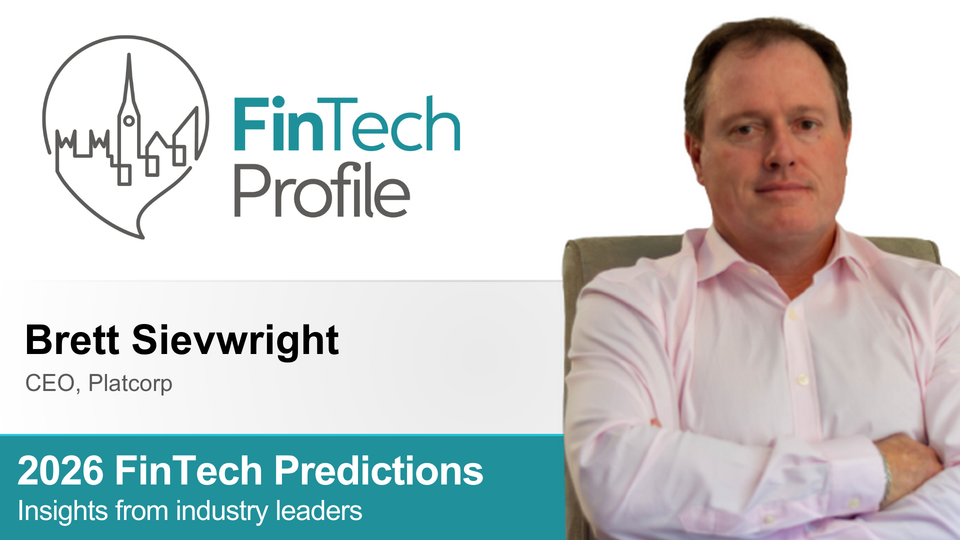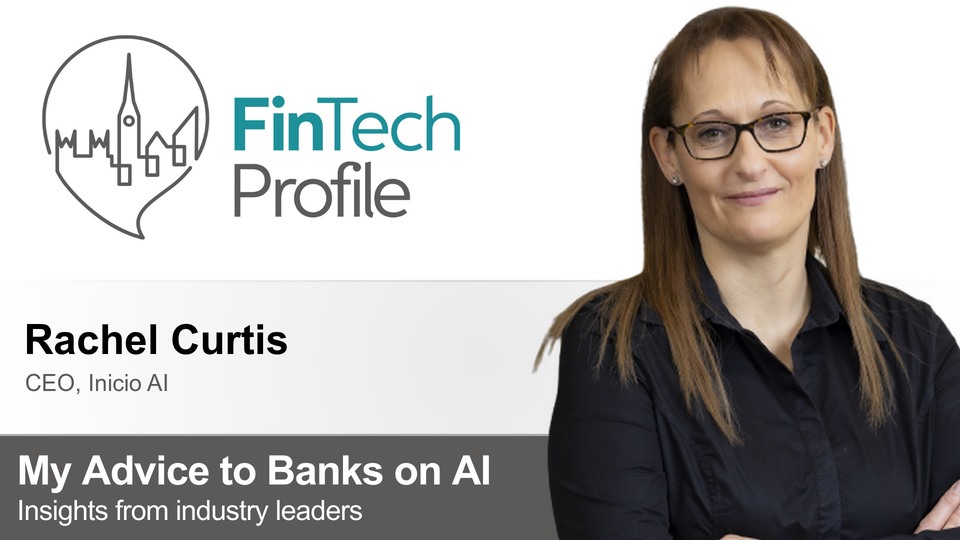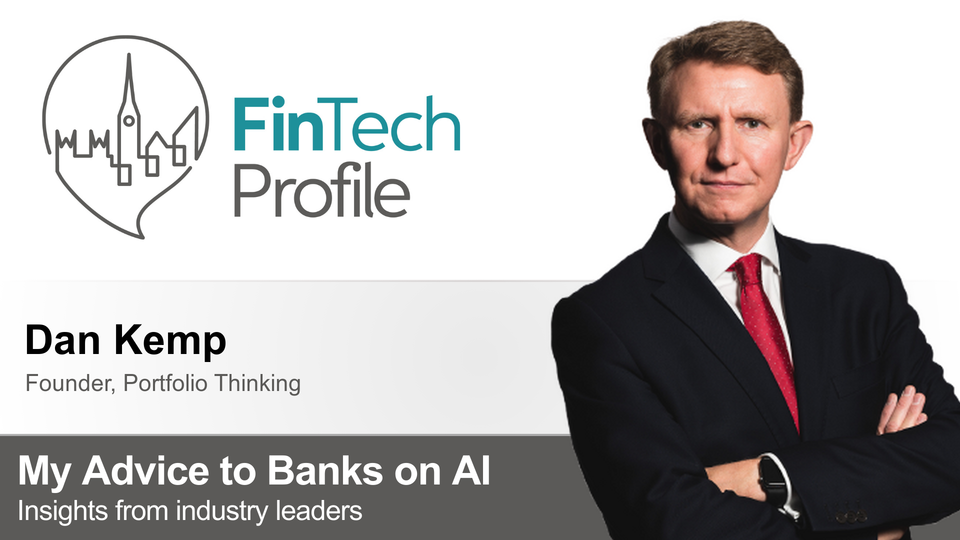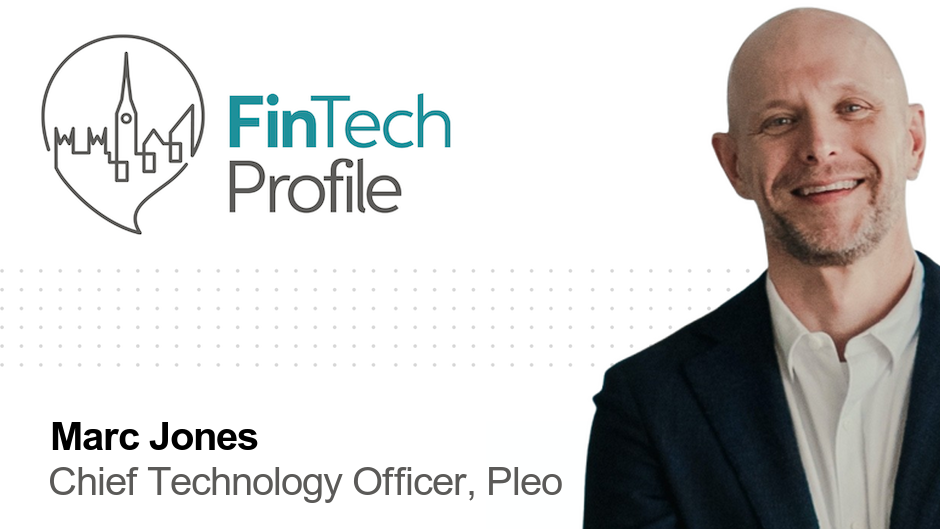Rav Hayer, Managing Director UK & Ireland, Thoughtworks
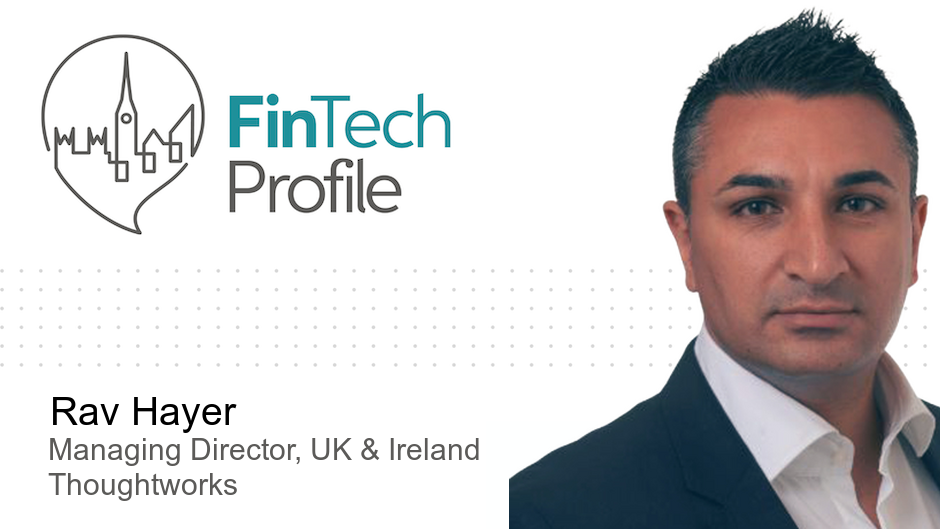
Today we're meeting Rav Hayer, Managing Director for the UK and Ireland at Thoughtworks, where he also heads up their Banking, Financial Services and Insurance practice across Europe.
With over 25 years of experience across Accenture, PwC, and Alvarez & Marsal, Rav specialises in helping financial institutions navigate complex systems integration and digital transformation.
Over to you Rav - my questions are in bold:
Who are you and what's your background?
I'm Rav Hayer. I lead Thoughtworks as Managing Director for the UK and Ireland, while also heading up our Banking, Financial Services and Insurance practice across Europe. I've been in this world for over 25 years now. I came up through the consulting ranks at Accenture and PwC, then spent time at Alvarez & Marsal before landing here at Thoughtworks. Each move taught me something different about how businesses really tick, especially when they're going through those make-or-break moments.
I'm from Newcastle, and it'll always be home; I get genuinely excited talking about the talent coming out of our Northern unis because I've seen firsthand how brilliant those graduates are. I now work from the Thoughtworks London office in the heart of Soho, which I love; there's something energising about being in the pulse of London's creative and tech scene. Not to mention the travel perks of my role; I get to work with Thoughtworkers and clients across continents. Some of my favourite cities to work in include New York, Mumbai, Hong Kong, and Dubai; each brings its own energy and perspective to the challenges we're solving.
What is your job title and what are your general responsibilities?
I lead Thoughtworks in the UK and Ireland as Managing Director, and I also serve as Head of Banking, Financial Services and Insurance for Europe. What that means day-to-day is I'm driving growth in our home markets while expanding our financial services leadership across the continent; it's a fascinating dual role that keeps me constantly moving. There is a lot of travel in my role. One day I can be in New York; the next I'm in Berlin. That's where the real magic happens when I'm connecting these diverse, global teams. As someone who's passionate about diversity and inclusion, I see firsthand how these inclusive, empowered teams that reflect our diverse world consistently deliver exceptional outcomes.
Can you give us an overview of your business?
At Thoughtworks, we're essentially helping companies figure out their tech future. Whether that's a traditional bank trying to build their first mobile app, a retailer wanting to use AI to understand their customers better, or a startup needing to move everything to the cloud without breaking the bank, we dive in and make it happen.
We've even created the first AI whiskey recipe. Take Bayer AG, one of the biggest names in the life sciences market. Bayer AG had an extensive drug development process spanning multiple stages to ensure drug safety and efficacy.
Thoughtworks worked with Bayer to make the most of its preclinical data; improving access and analysis of past and ongoing drug development programmes and accelerating the way scientists can work with preclinical data.
What's the origin story of the company?
Back in the late 1980s, Roy Singham started what would become Thoughtworks from his Chicago basement, originally calling it 'Singham Business Services' and focusing on the equipment leasing industry. It was the classic startup story, big ambitions, humble beginnings.
By 1993, he'd officially incorporated the company with a clear mission: use brilliant engineering and cutting-edge technology to solve the business problems that keep executives awake at night. Fast forward to today, and Thoughtworks has grown into something remarkable, a global technology consultancy with over 10,000 talented people spread across 47 offices in 18 countries.
Here in the UK, we've got offices in London, Manchester, and our newest addition in Newcastle, which opened in 2021.
Who are your target customers? What's your revenue model?
We partner with banks, FinTechs and public sector organisations of all shapes and sizes, whether they are scaling fast or modernising legacy infrastructure. Our revenue model flexes between project based and retainer engagements depending on the client's needs. We love working with clients to help them connect their systems and make sense of their data.
Whether it's linking up different software, moving information from one place to another, or making sure things run smoothly in real time, our focus is on practical solutions that make people's work easier.
What are your company's core technical competencies?
We help businesses transform how they deliver software by putting AI at the heart of modernisation. When our clients face the challenge of connecting systems, migrating data, or meeting new regulatory standards like Open Banking and ISO 20022, we become their trusted technical partner. What sets us apart is how we approach every project - we're not tied to any single vendor or technology stack. Instead, we focus entirely on what will work best for your specific situation.
Whether you need seamless API connections, smooth cloud transitions, or real-time processing that your customers can rely on, we bring the right mix of expertise and innovation. Our AI-powered engineering doesn't just speed things up - it helps you make smarter decisions, reduce risks, and deliver better outcomes for the people who matter most: your customers and your team.
How are you leveraging AI in your integration solutions (or beyond)?
We're using AI to make our integration work smarter, safer and faster. Our teams are embedding AI capabilities, like intelligent data mapping, anomaly detection, automated testing, and predictive maintenance, right into the core of financial systems, but always with people at the helm making the key decisions.
We've learnt from cases like Monzo's recent £21 million FCA fine, where rapid growth without proper compliance controls led to customers being onboarded with dodgy information; it really drives home why the best platforms are those where automation supports human expertise rather than trying to replace it entirely.
We're also working with clients, like our work with Jugalbandi, an AI-powered platform that helps millions access government services in India, to apply AI integration principles that break down barriers and make complex systems more accessible. By bringing these same thoughtful and human-centred AI approaches to our financial services clients, we help them implement AI-driven integration solutions in ways that actually work for their teams.
What's the most complex integration project you've completed?
One of the most challenging integration projects I've led was building a global liquidity platform for a major investment bank. Their clients were struggling with a fragmented view of their investments, different systems in different regions, none of them talking to each other. We needed to change that. As the Global Programme Lead, I was responsible for delivering a brand-new platform that could unify everything. That meant coordinating development and testing teams across time zones, from Hong Kong to the US, and working with partners like Polaris. I also had to navigate a pretty complex stakeholder landscape across the UK, Europe, Asia, and the US to make sure everyone was aligned.
The technical hurdles were significant. We were replacing a deeply embedded legacy system, which came with all the usual resistance and risk. The data migration alone was a beast, multiple layers of infrastructure, different formats, and regulatory requirements depending on the region. We had to build something that could handle all of that while still delivering a seamless experience for the end user. What made it especially tough was the global scale. Every geography had its own product nuances, language needs, and compliance rules. But we tackled it head-on, embedding regulatory requirements into the design from the start, and building a flexible architecture that could adapt as needed.
In the end, we delivered the platform on time and within budget, giving clients a single, clear view of their investments for the first time. It transformed their digital experience and strengthened the bank's global offering.
How do you handle security and compliance in financial services integrations?
Security and compliance are built into every integration from the start, we don't treat them as tick-box exercises. We embed AML (Anti-Money Laundering), KYC (Know your customer), and consent management into system design. This approach creates natural security boundaries between system components whilst keeping the operational stability that critical payment systems need. We're hands-on with the changing UK retail payments landscape, helping clients prepare for tokenisation, digital money, and real-time fraud checks. With the Bank of England championing collaboration and the Retail Payments Infrastructure Board just ahead, we're rolling up our sleeves to get organisations ready for what's next: new systems that can handle everything from CBDCs and stablecoins to tokenised bank deposits.
Our systems work with the shift towards programmable money and the cloud-native, API-first architecture that's driving this transformation. We also handle European compliance requirements like GDPR and PSD2, and our modular approach means we can adapt quickly to emerging regulations like MiCA. Our cloud-native infrastructure lets us deploy new compliance features fast, so payment systems can evolve continuously rather than through those painful major upgrades that disrupt everything. This puts our clients in a good position to take advantage of opportunities in both traditional and digital money integration as the financial world continues to change.
If you had a magic wand, what one thing would you change about how financial institutions approach systems integration or API strategies?
I would re-think how financial institutions approach integration by removing the fear of experimentation. Too often, legacy thinking slows down progress, especially when it comes to API strategies. We need to move from cautious optimisation to bold transformation, embracing open standards, cloud native design and real time data flows.
What is your message for the CTOs and CIOs of large financial institutions?
Integration is no longer just a technical challenge, it is a strategic lever for growth, resilience and innovation. My message is simple: embrace modular architecture, open APIs and AI for software delivery. Build systems that are secure by design, compliant from the start and ready for real time collaboration. Let us not wait for disruption, let us lead it.
Where do you get your Financial Services/FinTech industry news from?
I'm a bit of a news junkie! I love catching up with what's happening via Bloomberg and the Financial Times, they're my go-tos for all things FinTech, and if I want a fresh take on the European tech scene, Sifted always has something interesting to say about emerging startups and venture capital trends.
Can you list 3 people you rate from the FinTech and/or Financial Services sector that we should be following on LinkedIn, and why?
If you're looking to stay up to date in the FinTech and financial services space, I find the following people really interesting:
- First up is Anne Boden MBE, the founder and former CEO of Starling Bank. Anne built one of the UK's most successful digital banks from the ground up, and her posts offer no-nonsense insights into digital banking, leadership, and the realities of scaling a disruptive business.
- Second is Chris Skinner, a globally recognised commentator on financial markets and fintech, and the author behind the influential blog The Finanser. His feed is a constant stream of forward-looking commentary on everything from AI to digital currencies, making him a must-follow for anyone wanting to keep pace with global finance trends.
- Finally, you should follow Dr. Leda Glyptis, a former senior executive at 10x Banking and one of the most incisive voices on banking transformation. Leda's posts are witty, clever, and brutally honest about what it really takes to modernise legacy institutions. Her commentary is invaluable for anyone involved in digital change.
What FinTech services (and/or apps) do you personally use?
I use a mix of FinTech services personally, including Atom Bank for its slick mobile-first experience and smart savings tools. I also use Monzo for everyday banking, it's intuitive, transparent and constantly evolving with features that genuinely make life easier.
What's the best new FinTech product or service you've seen recently?
One of the most impressive FinTech solutions I've come across recently is from ComplyAdvantage. They're using advanced AI to help financial institutions detect financial crime and manage risk in real time. What's exciting is their shift towards an agentic model, instead of just flagging suspicious activity, their system continuously monitors and assesses risk across global datasets. This a huge step towards autonomous compliance, and a brilliant example of AI solving a complex industry challenge.
Another standout is Volt.io, which is building a global real-time payments network. It enables merchants to accept direct account-to-account payments at checkout, bypassing traditional card schemes. By leveraging Open Banking infrastructure, Volt is creating a new payment rail that could seriously shake up the status quo.
Finally, let's talk predictions. What trends do you think are going to define the next few years in FinTech systems integration?
Looking ahead, I'm convinced that the next wave of FinTech integration will be driven by a powerful mix of AI and, soon enough, quantum computing.
We're already seeing AI revolutionise the way we handle and interpret data, but as quantum leaps onto the scene, it'll take things to another level, especially when it comes to crunching numbers for risk analysis or spotting fraud in real time.
Alongside this, I expect cloud-native infrastructure, open APIs, and embedded finance to really take off, fuelled in part by the UK's fresh approach to payments systems.
Thank you Rav.
Find out more about Rav on his LinkedIn and read more about Thoughtworks at their website www.thoughtworks.com.

